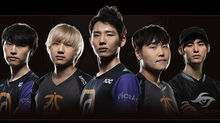CSGO Lotto Owners Settle Charges with Federal Trade Commission
- Play4Win - Admin

- Sep 11, 2017
- 2 min read
Trevor “TmarTn” Martin and Tom “ProSyndicate” Cassell—better known as the founders and owners of CSGO Lotto, an esports gambling site utilizing in-game items—have settled their charges with the Federal Trade Commission. The order from the FTC is the first of its kind, as it is the first targeting “individual social media influencers.” As such, this order sets a further precedent for all individuals that use social media as part of their businesses.

“The Commission order settling the charges requires Martin and Cassell to clearly and conspicuously disclose any material connections with an endorser or between an endorser and any promoted product or service,” states the FTC order. “Also today, the FTC announced that staff has both sent warning letters to 21 social media influencers it contacted earlier this year regarding their Instagram posts, and updated staff guidance for social media influencers and endorsers.”
In short: they need to disclose their connections with advertised services in the future, and cannot pay others to advertise for the site without disclosing the connection. Failing any disclosures in the future “may result in a civil penalty of up to $40,654.”
This ruling ultimately follows from endorsement guidelines the FTC updated alongside the settlement, now specifically addressing the use of social media and endorsements within social media posts (tagging a company that pays you to advertise for them, for example, must have that relationship clearly disclosed):
“The new information covers a range of topics, including tags in pictures, Instagram disclosures, Snapchat disclosures, obligations of foreign influencers, disclosure of free travel, whether a disclosure must be at the beginning of a post, and the adequacy of various disclosures like ‘#ambassador.'”
On the surface, this ruling may read as a slap on the wrist for Martin and Cassell. But remember, the FTC didn’t have clear guidelines before this case, and while there’s no question that the actions they took were wrong, the Commission is more concerned about establishing precedent for the future. Future violators of this practice may find them facing much steeper settlements, potentially including fines.

And, of course, that doesn’t include civil litigation. The lawsuit against CSGO Lotto and its owners, initiated last summer, has seen little movement—but in January, the lawyer suing Martin and Cassell, Jasper D. Ward from Jones Ward PLC, felt “good” about his chances.
Ward has also filed a lawsuit against the game’s developer, Valve Corporation, but was forced to refile into the district court system, while Valve at the time was fighting to remove the case back into the federal court system where it was dismissed initially.
Whether or not the pair will face criminal charges is still up in the air, but the precedent set by a similar case in the UK was staggering. Two YouTubers that had set up a gambling website using in-game items from the FIFA franchise ultimately pled guilty and were issued fines of a combined $330,000.













































Comments